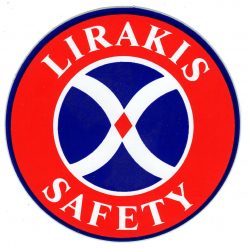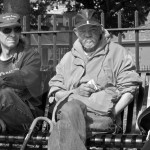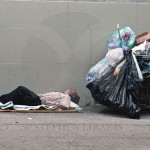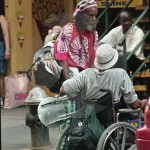When I write about sailing or photography it is, in the end about amusement. I could argue that photography helps raise social consciousness,(Jim Goldberg’s Raised by Wolves) but nothing can replace direct action. We react violently when we see pets dogs or cats treated poorly. Our heart strings are pulled when we hear of starving or deprived people in poor countries of the world. But we seem to avert our eyes when it comes to the poor in our own country. I don’t know if it is that we cannot bring ourselves to acknowledge that the “greatest country in the world” has a flaw. That the fear of admitting how many people in this country live poor; is just too much to bear. The remedy seems too overwhelming.
Medical Missionaries, Part One
Posted: May 07, 2012 11:39 PM EDT
Updated: May 07, 2012 11:59 PM EDT
By Karen Meyers – email
No doubt you’ve heard of Doctors Without Borders.
In Rhode Island there is a group with a similar mission of providing free health care. For the past 25 years the local doctors, nurses and other volunteers have traveled to Central America, on their own dime, to treat the needy.
This year, for the first time in their history, with the need so great in their own backyard, they decided to stay in the U.S.
“She always wore glasses. For driving. For reading,” Melanie says.
When she passed away, Millspaugh knew her mothers glasses could change lives.
“Not to throw them in the garbage but to see that someone else could make good use of them,” she explained.
She brought them to her optometrist who is part of the volunteer medical group Northeast VOSH.
Doctor Carl Sakovits, who practices in Bristol, heads up the group. He’s been on every single mission, twenty-five of them, to Central America; to third world countries where he and other volunteers are often the only doctors people ever see.
“You go down there and we’re talking about thousands of people who are in the same desperate situation,” says Dr. Sakovits, “the need is so immense and you’re the only one at that moment who can do anything to help them.”
He gives eye exams, dental and medical check-ups and even uses donated supplies like the glasses from Millspaugh back in Barrington.
They find extraordinary poverty, pain, and hope.
Such as Jorge in Honduras. His joints were fused at birth. Stuck at home with his parents in a one-room hut, he could not go to school.
“He was bright, he just had physical limitations,” said Dr. Sakovits.
The only way he got around was when people carried him in a wheel barrow or a burlap sack.
We were able to put him in a wheelchair,” says Dr. Sakovits, “we gave him dignity. We gave him the ability to sit up, interact, and attend school.”
Their success in Central America was inspiring. Then Doctor Sakovits began to notice a profound change right here in his own country.
“I started to hear my own patients talk about worries of layoffs, hours being reduced at work,” he said.
They often have to choose between health care and groceries.
“They’re struggling to pay the rent or pay their mortgage or struggling to feed their family,” he said. “As a group, we were feeling, it was really time.”
Broadening their mission, their focus was on an impoverished home.
So Northeast VOSH headed to Tennessee, teaming up with the group Remote Area Medical, or RAM. RAM holds free mobile clinics something that is allowed in only three states: Connecticut, Illinois, and Tennessee.
Here’s what awaited them:long lines. People camped out in tents and in their cars in the parking lot, on this cold 30-degree night in Bristol, Tennessee. Twenty-four hours before the gates open, desperate for care, fearful they will miss out.
If you’d like to donate, or volunteer to Northeast VOSH, contact them at islanddoc5@aol.co



